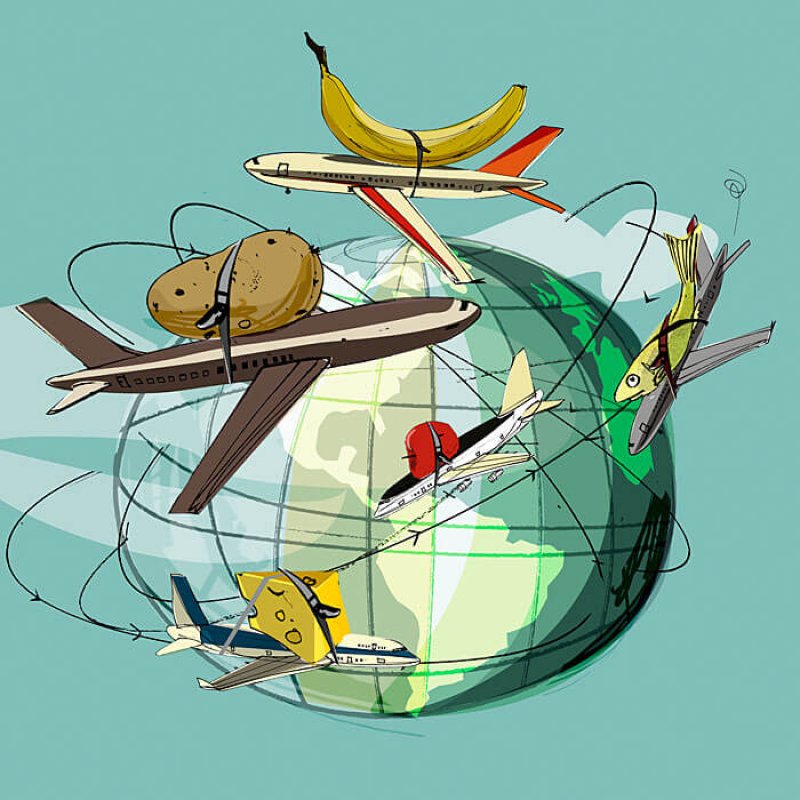[Editor’s note: Pierre Desrochers is an associate professor in the Department of Geography at the University of Toronto. Hiroko Shimizu is a private consultant.]
Activists tout low “food miles” to discourage consumers from buying foods produced in and transported from distant locations. This movement argues that locally produced food is not only fresher and better tasting — which can be plausible claims — but is also more nutritious, beneficial for the local economy and better for the environment because it requires less energy to reach consumers’ table.
…
[A]ny realistic assessment must reflect both transport to final consumers and the total energy consumption and greenhouse gas emissions associated with production conditions that vary widely between different locations. For example, Californian strawberries are grown year-round under almost ideal conditions (neither too humid nor too hot). As a result, one hectare of California land will yield over 34,000 kilograms of berries, compared to approximately 2,000 in Ontario….The largest greenhouse gas impact of food transportation can be attributed to individual families making many small-volume shopping trips by car to transport food from retail stores to their homes….
Our modern globalized food supply chain is a demonstrably superior alternative that has evolved through constant competition and ever more rigorous management efficiency.
The GLP aggregated and excerpted this blog/article to reflect the diversity of news, opinion, and analysis. Read full, original post: Food Mile Myth: Buy Global































